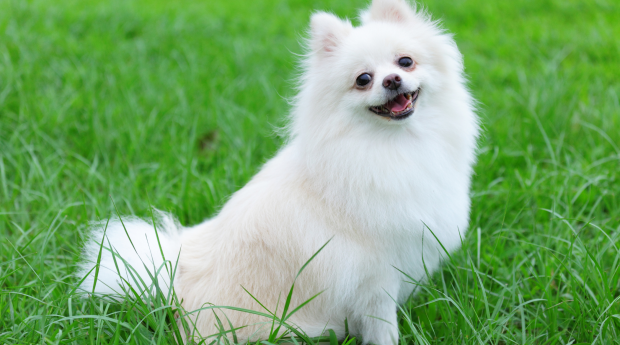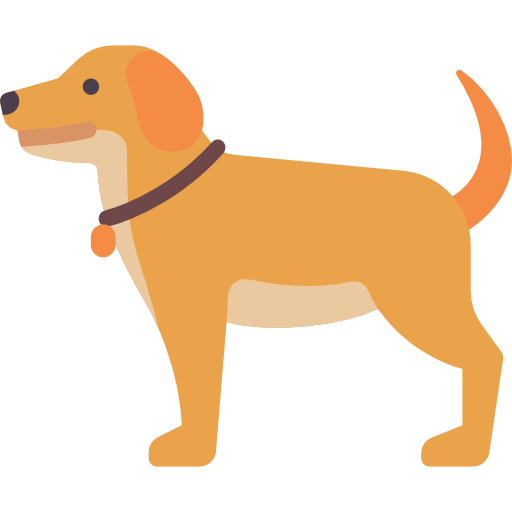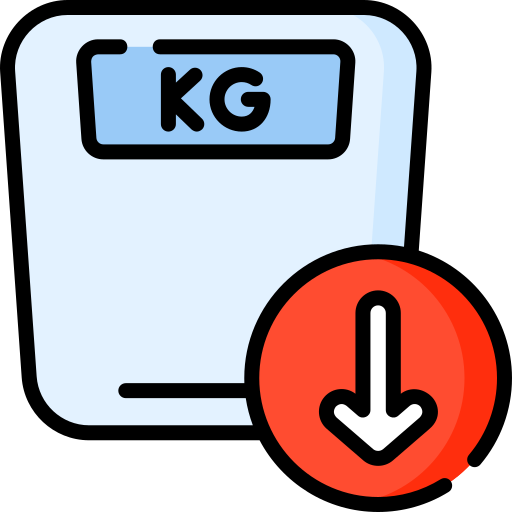No products in the cart.
Pomeranian (Pom): Dog Breed Characteristics & Care
The Pomeranian, a cherished companion for both royals and commoners, is renowned for its tiny stature and big-dog demeanor, weighing no more than seven pounds. With a distinctive double coat in various colors, the Pomeranian’s vivacious personality and foxy face contribute to its status as one of the most beloved toy breeds globally. Despite their small size, Pomeranians are alert, intelligent, and easily trainable, excelling as both watchdogs and playful family pets. Their energetic nature is balanced with adaptability to indoor play and short walks, making them suitable for city and suburban living.
Originating from the Pomerania region in Europe, these Spitz-type dogs are characterized by their compact size, fluffy coats, and spirited temperament. Their fearlessness, liveliness, and natural curiosity create an endearing and inquisitive appearance. Pomeranians are known for their enthusiasm in mastering tricks and games, but their true joy lies in providing companionship and laughter to their human counterparts. Regular grooming is essential to maintain their luxurious coat, and early socialization plays a crucial role in shaping their friendly demeanor. In summary, the Pomeranian is a delightful and adaptable breed, blending charm, intelligence, and affection in a pint-sized package.
Pomeranian Images

Pomeranian Videos
Average sizes and life expectancy of Pomeranian

Pomeranian Height
7 - 13 inch inches (male)
7 -12 inch inches (female)

Pomeranian Weight
4 - 4.5 lbs Pounds (male)
3 - 7 lbs Pounds (female)

Pomeranian Life Expectacy
10-16 Years
Pomeranian Weather Adaptability
Understanding the temperature tolerance of Pomeranians is crucial for safeguarding their health and overall well-being. This comprehension not only aids in averting potential health issues arising from extreme temperatures but also guides pet owners in choosing appropriate activities, grooming routines, and living environments for their Pomeranian. It extends beyond ensuring mere comfort; it stands as a pivotal factor in preserving the health and happiness of your Pomeranian.
Pomeranian Stats
Characteristics | Rating |
Dog Breed Group | Spitz Dog |
Coat length | Long |
Color | Orange with black or brown marks or solid white, or black and tan color |
UKC Class | Companion Dog |
Barking | 4 Star |
Grooming Needs | 3 Star |
Social Needs | 3 Star |
Pomeranian Traits
The outgoing Pomeranian is intelligent and full of energy. He enjoys meeting new people and generally gets along with other animals, although he may occasionally perceive himself as larger than he actually is. Caution should be taken to prevent him from challenging larger dogs due to this misconception. Pomeranians, known for their alertness and curiosity, excel as watchdogs and will vocalize in response to anything unusual.
Friendliness | 5 stars |
Good With |
|
Other Dogs | 3 stars |
Good With Kids | 3 stars |
Barking | 4 stars |
Tendencies |
|
Energy Level | 3 stars |
Playfulness | 3 stars |
References & Definition
- Dog Breed Group (AKC Class): Pomeranian Breed Standard and below information were taken from American Kennel Labrador Standard.
- Coat length : The anticipated length of the coat of the breed. Breeds with long hair can be trimmed too short, but they need regular maintenance to keep them in good condition.
- Color:
- Barking: Does the breed bark a lot or howl. Some breeds bark at everyone, while others bark only in certain circumstances. Some barkless vocal breeds use other sounds to get attention.
- Grooming Needs: The required frequency of grooming of the breed includes bathing, trimming, and other techniques. Consider the time, money, and patience necessary for grooming while looking at the efforts required for grooming the breed. Regular nail trimming is essential for all breeds.
- Social Needs
- Size
- Friendliness
- Good With Other Dogs: What is the behavior of the breed toward other dogs. Dogs need supervision while interacting with other dogs, but some breeds inherently love to play with other dogs at home and outdoors.
- Good With Kids: How the breed tolerates and shows patience in the behavior of the kids. Dogs must be supervised around kids, especially those with less exposure to dogs.
- Tendencies
- Energy Level: The requirement of exercise and mental stimulation of the breed. Dogs with high energy levels are ready to go and love to explore more. These dogs usually run, jump, and play all the time. Dogs with low energy simply love to lay on the couch and snooze.
- Playfulness: How much the breed loves to play even after crossing the puppy age. Some adult dogs love to play games like tug-of-war or fetch the ball, while others prefer spending their time relaxing on the couch.
Pomeranian Overview
Pomeranian History
Pomeranian Personality
Pomeranian Feeding & Diet
Pomeranian Care
How to care for a Pomeranian at home?
Pomeranian Health Issues
Pomeranians with Children and Other Pets
Pomeranians Training
Pomeranian History
Pomeranian History
Pomeranians, originating from the province of Pomerania, were developed from ancient Spitz breeds of the far northern countries. Belonging to the Spitz or Northern group of dogs, they share characteristics like wedge-shaped heads, prick ears, and thick furry coats with breeds such as the Norwegian Elkhound, Schipperke, German Spitz, American Eskimo Dog, and Samoyed. Initially, Pomeranians weighed up to 30 pounds.
Throughout history, notable figures like Martin Luther, Michelangelo, Isaac Newton, and Mozart were known to have Pomeranian-type dogs. However, the breed gained widespread popularity during the reign of Queen Victoria, who had a special fondness for Pomeranians. Victoria’s Pomeranian named Marco, encountered during a trip to Italy in 1888, inspired the breeding of smaller Pomeranians.
Queen Victoria’s influence led to the stabilization of the breed standard, with Pomeranians’ size decreasing and their characteristic deep frilling developing. A broader range of colors also became available, expanding from the original white, black, chocolate, and blue to include orange. The popularity of Pomeranians crossed the Atlantic, with the first entry into the American Kennel Club (AKC) stud book in 1888. By 1909, the American Pomeranian Club became a member of the AKC, solidifying the breed’s popularity in the United States, where they eventually became one of the most popular dog breeds. Today, they rank 14th among the 155 breeds and varieties registered by the AKC.
Pomeranian Personality
Pomeranian Personality
The outgoing Pomeranian is intelligent and lively, enjoying interactions with both people and other animals. However, caution is advised as they may perceive themselves as larger than they are, potentially challenging bigger dogs. Their alert and inquisitive nature makes them excellent watchdogs, but training to control excessive barking is essential. Temperament, influenced by factors like heredity, training, and socialization, is crucial in selecting a puppy. opt for one with middle temperament, avoiding overly aggressive or excessively shy individuals.
Addressing behavioral traits early is vital, as aggression and shyness may not be outgrown. Meeting at least one parent, preferably the mother, ensures a favorable temperament. Socialization, exposing Pomeranians to diverse stimuli, is vital during their formative stages. Puppy kindergarten classes, regular visits from guests, and outings to parks and stores contribute to well-rounded social development. Ensuring that the dog’s interactions with people, sights, and sounds are positive helps mold a Pomeranian into a friendly, calm, and easy-to-live-with companion.
Pomeranian Feeding & Diet
Pomeranian Feeding & Diet
Recommended daily food amount for Pomeranians: 1/4 to 1/2 cup of high-quality dry food, divided into two meals. Adult dog’s food intake depends on factors like size, age, build, metabolism, and activity level. Individual differences exist among dogs, and their food requirements vary. Highly active dogs require more food than less active counterparts. The quality of dog food matters; better-quality food provides more nourishment, requiring less quantity. Consider individualized guidelines for buying the right food, feeding puppies, and feeding adult dogs.
Pomeranian Food Composition:
Optimal Pomeranian diet is balanced, considering life stage and energy needs with high-quality protein, healthy fats, vitamins, minerals, and fiber from vegetables and berries.
Things to consider while feeding your Pomeranian
- Monitor weight through visual and hands-on checks.
- Adjust food and exercise based on weight and activity level.
- Special care needed for Pomeranian to prevent rapid growth-related issues.
Fruits that Pomeranian can eat:
- Blueberries – Rich in antioxidants, especially phytonutrients and anthocyanins.
- Raspberries – High in antioxidants, choose organic for greater benefits.
- Pumpkin – Beneficial in specific situations, opt for 100% fresh pumpkin over canned.
- Mango – A healthy stone fruit, rich in vitamins and low in calories.
- Watermelon – 92% water, ideal for hydration on hot days.
- Apples – Provide bite-size slices, avoiding core and seeds.
- Bananas – Feed in moderation, avoiding excess for dogs with specific health conditions.
- Strawberries
- Pineapple
- Oranges (occasional slice)
- Cantaloupe
- Kiwifruit
- Nectarines.
Pomeranian Care
Pomeranian Care
Pomeranians thrive in active indoor environments, making them suitable companions for apartment dwellers or those without a fenced yard. With a moderate activity level, they delight in multiple short daily walks and play sessions. Despite their hardiness, it’s crucial to consider their small size and sensitivity to heat, limiting prolonged outdoor activities.
Their love for play makes toys essential, and variety is key to prevent boredom. Regularly rotating toys keeps them engaged, especially with toys that offer mental challenges. An enjoyable and beneficial activity for both owner and Pom is trick training. Pomeranians, with their love for learning and attention, find trick training a bonding experience that provides exercise and mental stimulation. Due to their short attention span, keeping training sessions brief and enjoyable is essential. Positive reinforcement through praise, treats, or play enhances the learning experience when the Pom correctly performs commands or exhibits desired behavior.
How to care for a Pomeranian at home?
How to care for a Pomeranian at home?
You need to keep following things in mind for Pomeranian care at home:
Nutritious Diet
- Opt for natural, high-quality dog food to avoid harmful ingredients.
- Beware of fillers, chemical preservatives, and coloring dyes in commercial dog food.
- Avoid flavor enhancers like MSG and prioritize real meat in the ingredients.
Dental Health
- Regularly check and maintain your Pomeranian’s oral health.
- Tartar and plaque can lead to infections and periodontal diseases.
- Brush your Pomeranian’s teeth daily using appropriate tools and non-foaming, fluoride-free dog toothpaste.
- Explore additional dental care methods, including supplements, dental sprays, and raw meaty bones.
Coat Care
- Use proper tools for brushing the double coat of Pomeranian fur.
- Regular brushing prevents matting, distributes body oils, and removes trapped debris.
- Brush daily during heavy shedding periods and aim for 2-3 times a week otherwise.
Exercise Requirements
- Engage your Pomeranian in regular exercise to promote overall health.
- Moderate cardio exercises benefit heart health, muscle mass, metabolism, and emotional well-being.
- Aim for two brisk walks of 15 to 20 minutes each daily.
Veterinary Check-Ups
- Schedule regular wellness checks with the vet, at least once or twice a year.
- Senior Pomeranians may require biannual check-ups.
- Early detection of health issues such as hip dysplasia, patella luxation, and heart disease is crucial.
- Discuss diet, exercise, and any concerns about your Pomeranian’s health during vet visits.
Pomeranian Health Issues
Pomeranian Health Issues
Pomeranians are generally healthy but can be prone to specific health conditions. Health clearances from reputable breeders are essential for ensuring the parents are free of certain diseases.
Common Health Concerns
- Allergies: Pomeranians may experience various allergies, including contact and food allergies. Look for signs such as paw licking or face rubbing and consult a vet.
- Epilepsy: Some Pomeranians may develop epilepsy, leading to seizures. Consult a vet for appropriate treatment.
- Eye Problems: Pomeranians are susceptible to eye issues like cataracts, dry eye, and tear duct problems. Regular vet check-ups are crucial for early detection.
- Hip Dysplasia: Although rare, hip dysplasia can occur in Pomeranians. Monitoring genetics, environment, and diet is essential.
Specific Health Conditions
- Legg-Perthes Disease: Affecting the hip joint, Legg-Perthes requires surgery to address the disintegration of the femur head. Signs usually appear at 4 to 6 months old.
- Patellar Luxation: A common problem, where the kneecap dislocates, causing pain. Many dogs can lead normal lives with this condition.
- Collapsed Trachea: The trachea tends to collapse easily, leading to a chronic cough. Training and using a harness can help manage the condition.
- Dental Problems: Pomeranians are prone to teeth and gum issues, emphasizing the need for regular dental exams and care.
Pomeranians with Children and Other Pets
Pomeranians with Children and Other Pets
Pomeranian love to play. Their behavior with kids and other pets is always friendly and playful.
Pomeranians with Kids
The bold and active Pomeranian is a playful companion, but he is best suited to a home with older children who can handle him carefully. Breeders often avoid selling puppies to homes with very young children due to the risk of accidental injuries. Despite their sturdiness, Pomeranians are susceptible to harm if dropped or stepped on by a clumsy child. It is crucial to teach children proper ways to approach and touch dogs and to always supervise interactions to prevent any accidental injuries or aggressive behavior. Children should be educated not to approach a dog while eating and never attempt to take away the dog’s food. It is advisable never to leave a dog unsupervised with a child.
Pomeranians with Others
Pomeranians can form good relationships with cats and other animals, especially if raised together. However, caution is needed when it comes to bigger dogs. Pomeranians, unaware of their small size, may fearlessly challenge larger dogs. It’s essential to protect them from potential harm and ensure a safe environment. Proper supervision and training can contribute to positive interactions between Pomeranians and other animals, fostering harmonious relationships.
Pomeranians Training
Pomeranians Training
Proper potty training for your Pomeranian involves consistency. If outdoor training is not feasible, indoor house-training using pee pads or a litter box in a designated area is an option. Guide your pup to the designated spot when you notice sniffing, use a verbal cue like “potty,” and reward immediately after he goes. Outdoor training requires repetition, consistency, and safe spaces. Take your Pomeranian out frequently, especially if he hasn’t received puppy shots. Use a specific command, praise, and reward when he goes. Consistency is key for successful potty training.
Obedience Training with Pomeranians
Beyond potty training, basic commands and socialization are crucial for Pomeranians. Socialize your Pom with various people and pets from a young age to adulthood. Introduce family members individually in a calm manner. Regular exposure to different animals prevents territorial behavior. Supervised introductions on a leash can lead to positive interactions. Obedience training addresses barking issues. Keep your Pomeranian busy with toys to curb boredom-related barking. Socialization helps prevent excessive barking at guests. Teach your Pom to accept the removal of toys or food to avoid territorial behavior. Consistent training and socialization contribute to a well-behaved Pomeranian.
Teach them not to bark
Pomeranian dogs bark a lot for self-defense, excitement or warning but unnecessary barking can cause various issues to you and the neighborhood. You must keep your Pomeranian busy because they bark when they are bored. You can provide them with various toys and enough playtime. Ensure that the Pomeranian has a safe place to live in a house where he is not uncomfortable. Investing some time and effort can lower the braking of your Pomeranian.
Pet training is now easy with Patmypets, we will transform your pet into a smart looking, friendly and healthy furball. Book appointment now!
Pomeranians Grooming
Pomeranian grooming is essential to keep the pet away from infections. Pet grooming is easy and can be done using some simple tricks and techniques:
- Brushing the Coat
Pomeranians have a double coat that requires frequent brushing with a pin brush and slicker brush to prevent matting. Brush weekly to the skin to maintain the coat’s beauty. Professional grooming every four to six weeks is recommended for a full groom, including bath, brushing, ears, nails, and anal glands.
Looking for professional groomers for your Pomeranian? Visit the Patmypets website today and book the grooming sessions for your furbaby at your home.
- Wiping the Eye Area, Preventing Tear Stains
Daily wiping of the eye area is essential to remove debris and prevent tear stains. Cleanse off particle debris and dried basal tears using a gentle approach to avoid irritation and staining.
- At-home Dental Cleanings and Care
Regular dental cleaning is vital for Pomeranians to prevent tooth decay, gingivitis, and other dental issues. It contributes to overall health and longevity. Combine veterinary exams with at-home cleaning and care for optimal dental health.
- Wiping the Coat and Spot-Cleaning
Wiping the coat removes allergens, debris, and stains. It maintains cleanliness between baths and adds a pleasant fragrance. Grooming wipes can enhance shine and softness.
- Paw Care
Proactive paw care is essential for Pomeranians. Apply paw protection wax to guard against irritants, burns, and dryness. The wax provides traction and safeguards paws from various surfaces.
- Nose Care
Protect your Pomeranian’s nose from the elements by applying a nose balm. This barrier prevents dryness, chapping, and cracking. Allow some UV exposure for pigmentation retention.
- Giving Baths
Baths are crucial for cleansing accumulated body oil, improving skin and coat health, and removing odors. Proper baths with suitable products enhance the overall grooming routine.
- Cleaning the Ears
Ear cleaning frequency depends on the dog’s susceptibility to wax buildup and infections. Regular at-home cleanings may be necessary, especially for those prone to ear issues. Veterinarian guidance is crucial.
- Trimming the Nails
Trimming or filing a Pomeranian’s nails is a delicate task. Owners can do it themselves, but caution is needed to avoid cutting the quick. Professional groomers can handle this task if preferred. Regular nail maintenance is essential for your Pom’s comfort and well-being.
Pomeranians Prices & Adoption in India
City | City | Pomeranians Price (₹) | Pomeranians Price ($) |
Andhra Pradesh (Vijayawada) | Himachal Pradesh (Shimla) | (₹)5,000 to (₹)70,000 | $60.22 to $843.80 |
Arunachal Pradesh (Itanagar) | Jharkhand (Ranchi) | (₹)7,000 to (₹)70,000 | $84.31 to $843.80 |
Assam (Dispur) | Karnataka (Bangalore) | (₹)10,000 to (₹)70,000 | $120.44 to $843.80 |
Bihar (Patna) | Kerala (Thiruvananthapuram) | (₹)5,000 to (₹)70,000 | $60.22 to $843.80 |
Delhi (New Delhi) | Haryana (Gurgaon) | (₹)12,000 to (₹) 70,000 | $144.53 to $843.80 |
| Madhya Pradesh (Bhopal) | (₹)8,000 to (₹)70,000 | $96.35 to $843.80 |
Goa (Panaji) | Maharashtra (Mumbai) | (₹)10,000 to (₹)70,000 | $120.44 to $843.80 |
Gujrat (Gandhinagar) | Manipur (Imphal) | (₹)15,000 to (₹)70,000 | $180.66 to $843.80 |
Haryana (Chandigarh) | Meghalaya (Shillong) | (₹)5,000 to (₹)70,000 | $60.22 to $843.80 |
Mizoram (Aizawl) | Nagaland (Kohima) | (₹)5,000 to (₹)70,000 | $60.22 to $843.80 |
Odisha (Bhubaneshwar) | Punjab (Chandigarh) | (₹)5,000 to (₹)70,000 | $60.22 to $843.80 |
Rajasthan (Jaipur) | Sikkim (Gangtok) | (₹)15,000 to (₹)70,000 | $180.66 to $843.80 |
Tamil Nadu (Chennai) | Telangana (Hyderabad) | (₹)15,000 to (₹)70,000 | $180.66 to $843.80 |
Tripura (Agartala) | Uttarakhand (Dehradun) | (₹)51,000 to (₹)70,000 | $614.25 to $843.80 |
Uttar Pradesh (Lucknow) | West Bengal (Kolkata) | (₹)10,000 to (₹)70,000 | $120.44 to $843.80 |
When you adopt a pet, it not only gives you joy but also helps a dog in need. Although you can easily buy the Pomeranian from breeders or stores, if you consider adoption, it will be a noble cause. There are numbers of Pomeranians waiting to go home, why not give them a chance to live a happy and safe life. The overpopulation crisis of the pets can be managed by adoption and you can easily contribute to this cause. Abandoned animals deserve love and care and adoption can help them get the love of their part. You have a chance to make a difference in the lives of these fur babies by adopting them.
At Patmypets, we foster loving connections between pets and parents. Your one decision can transform the life of a Pomeranian and also give you a buddy who will love you unconditionally. Read More about Average Pomeranian Dog Price in India











